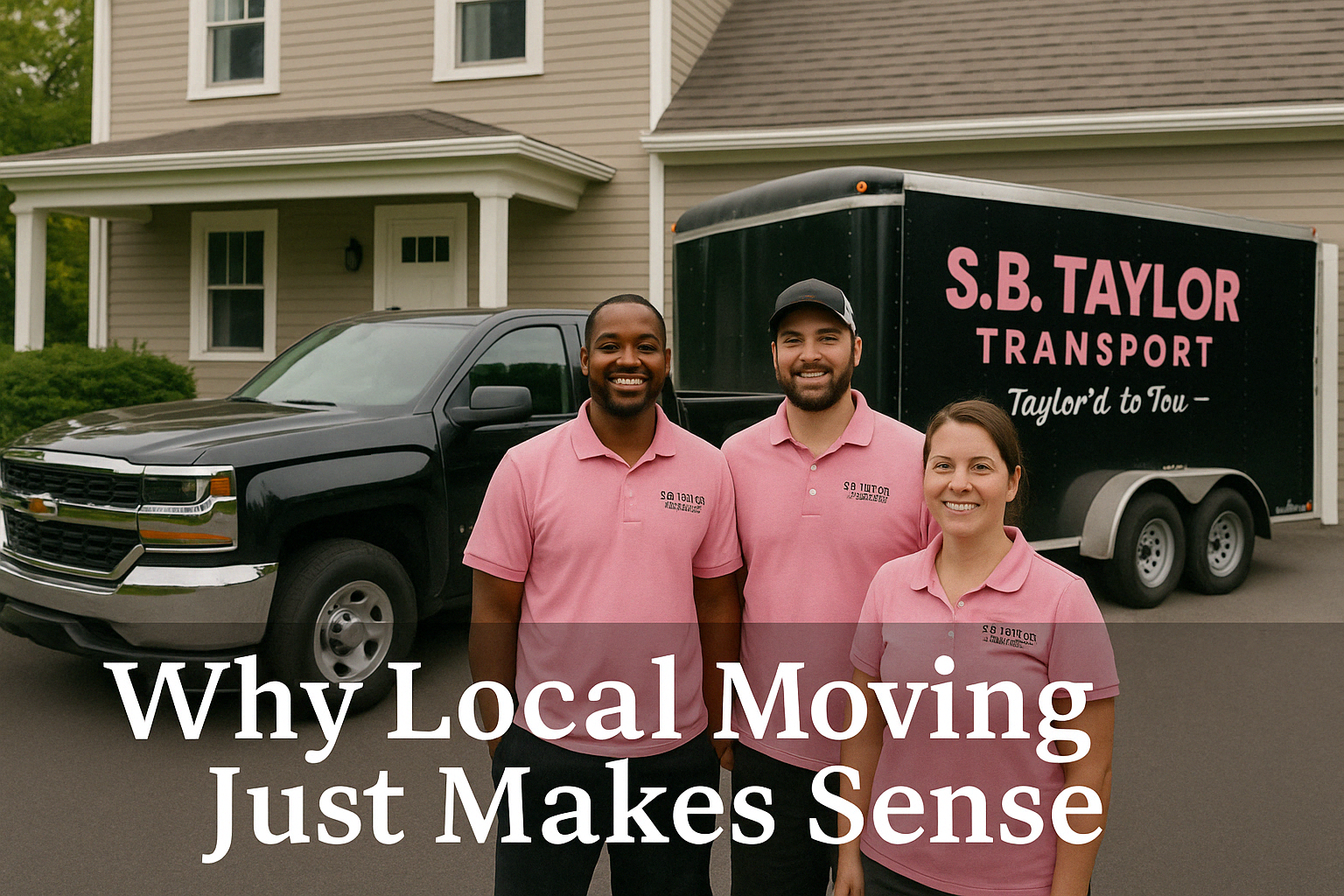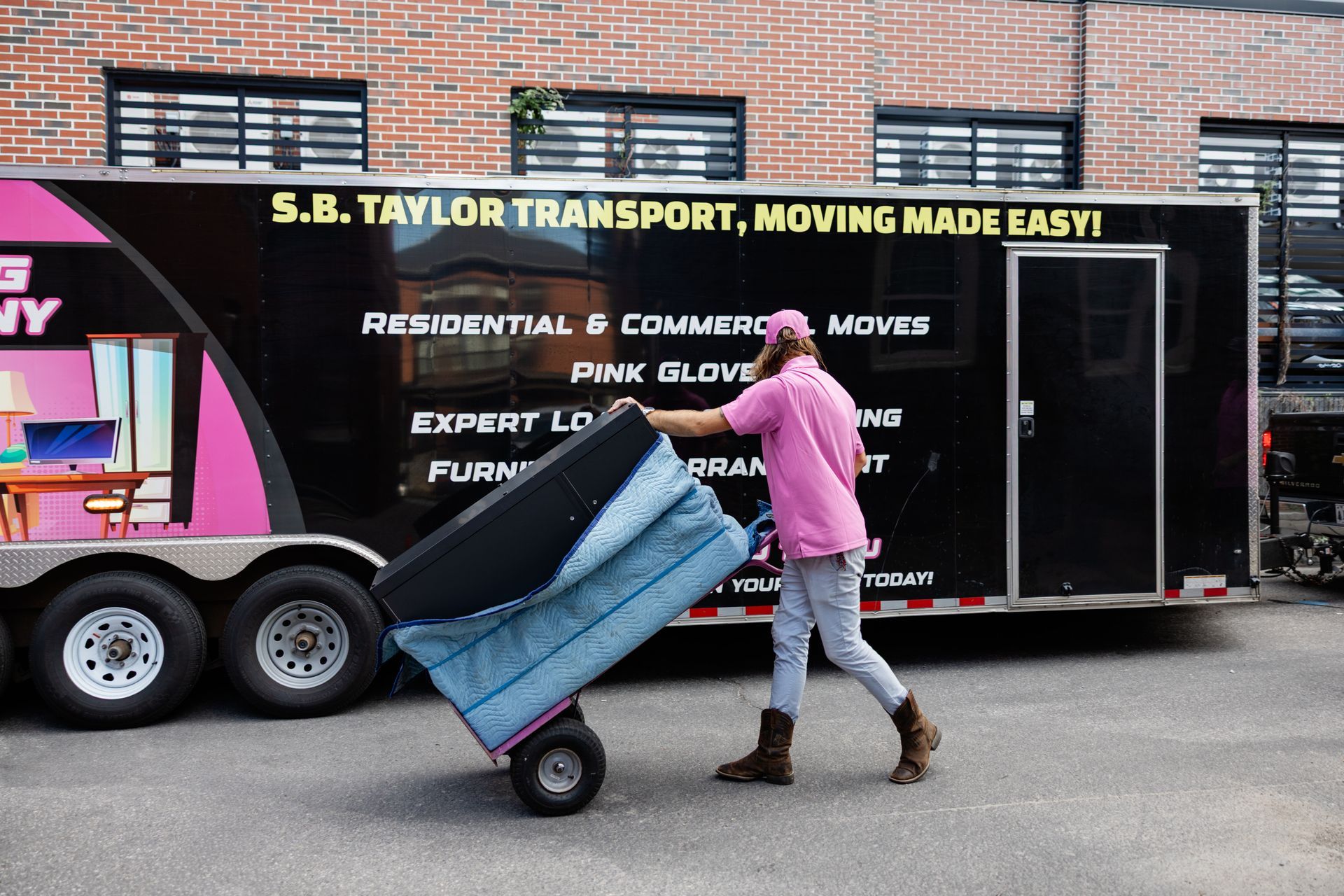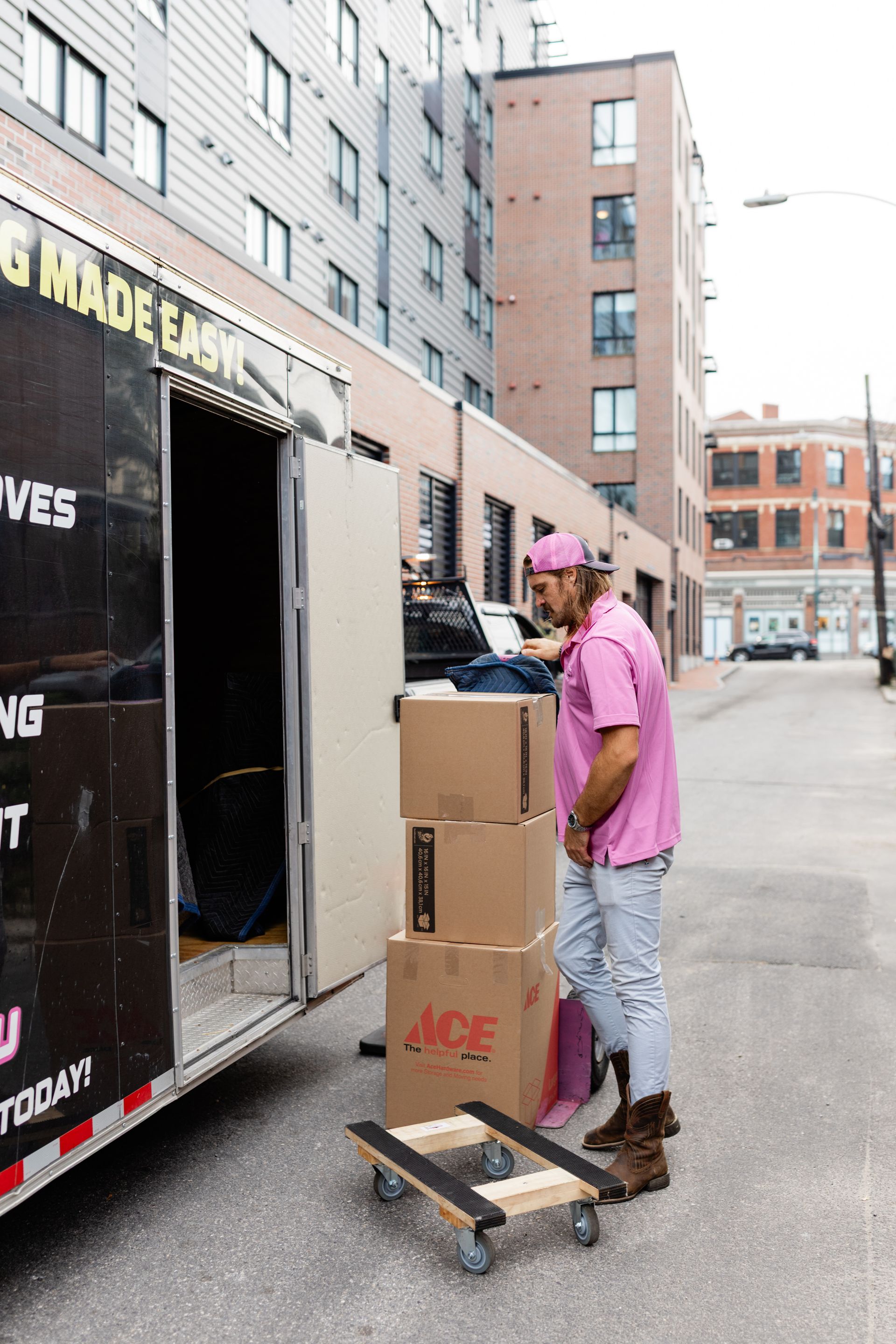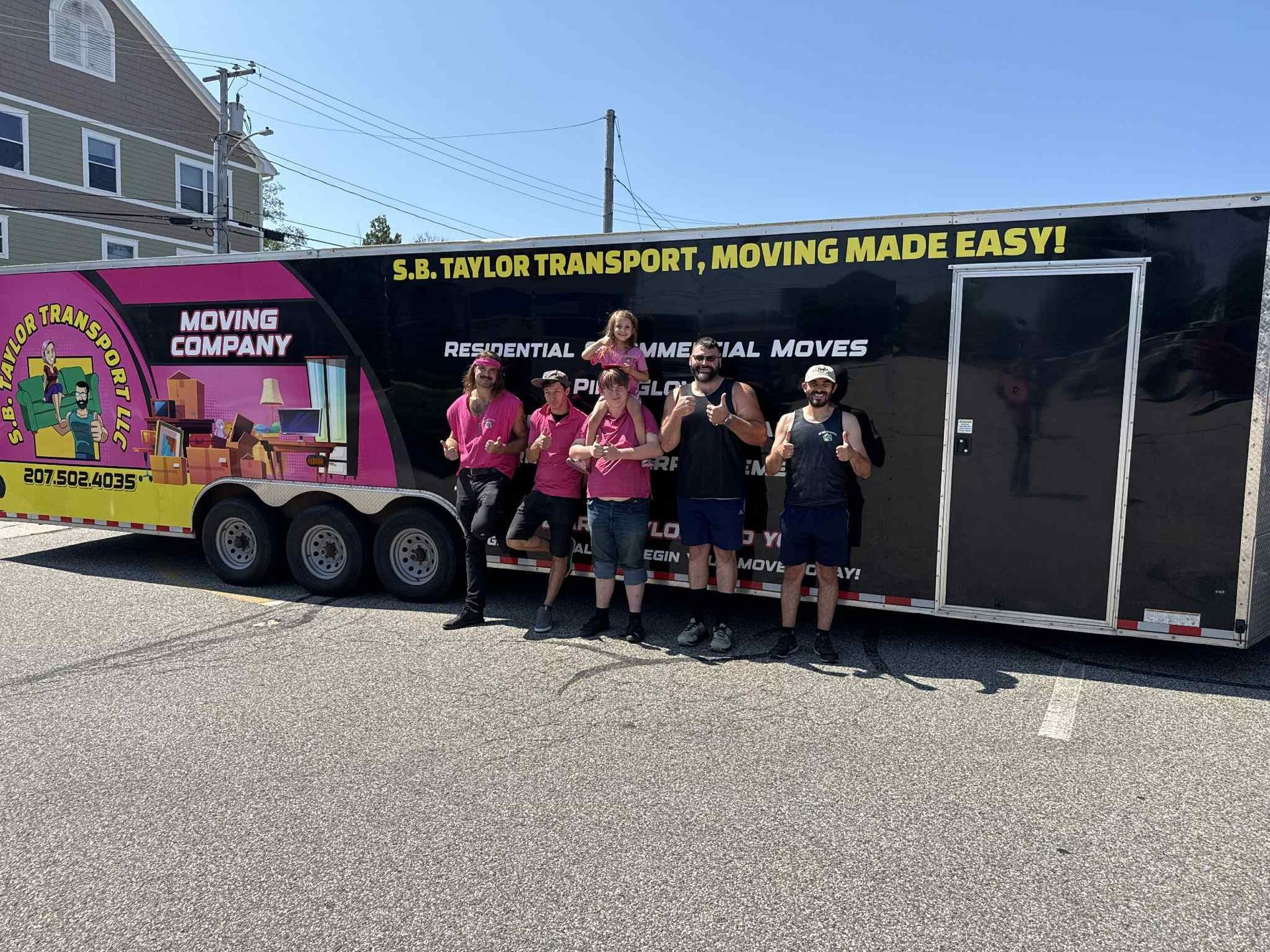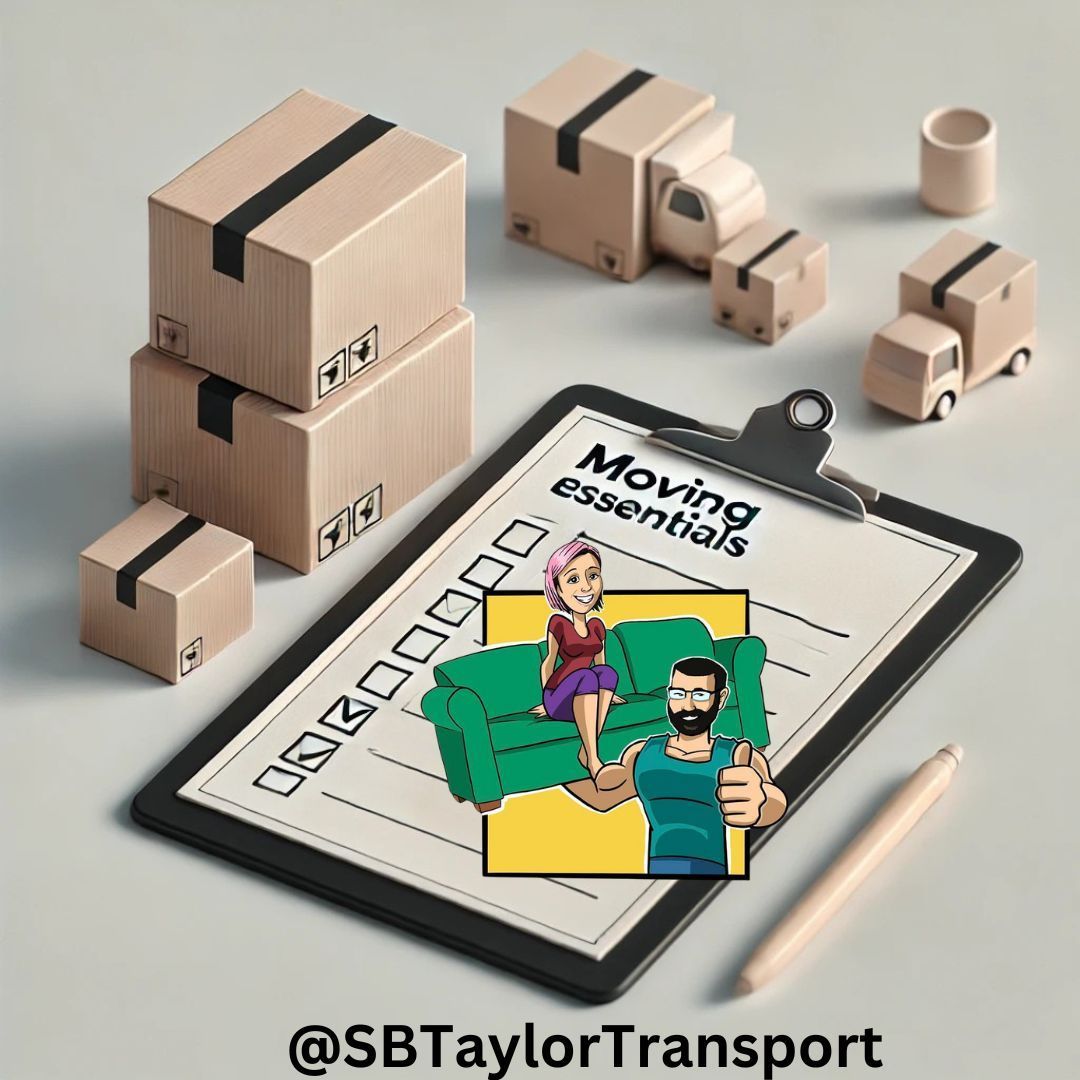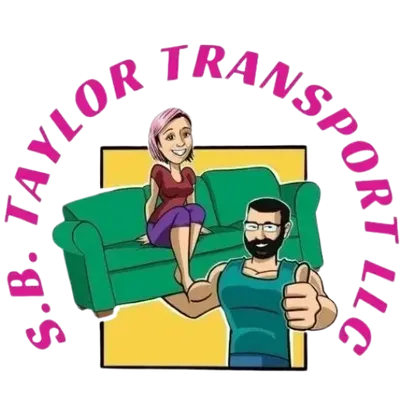How to Move a Parent with Dementia in Maine: Advice from a Former CNA
What I Learned Sitting with Families During the Hardest Transitions
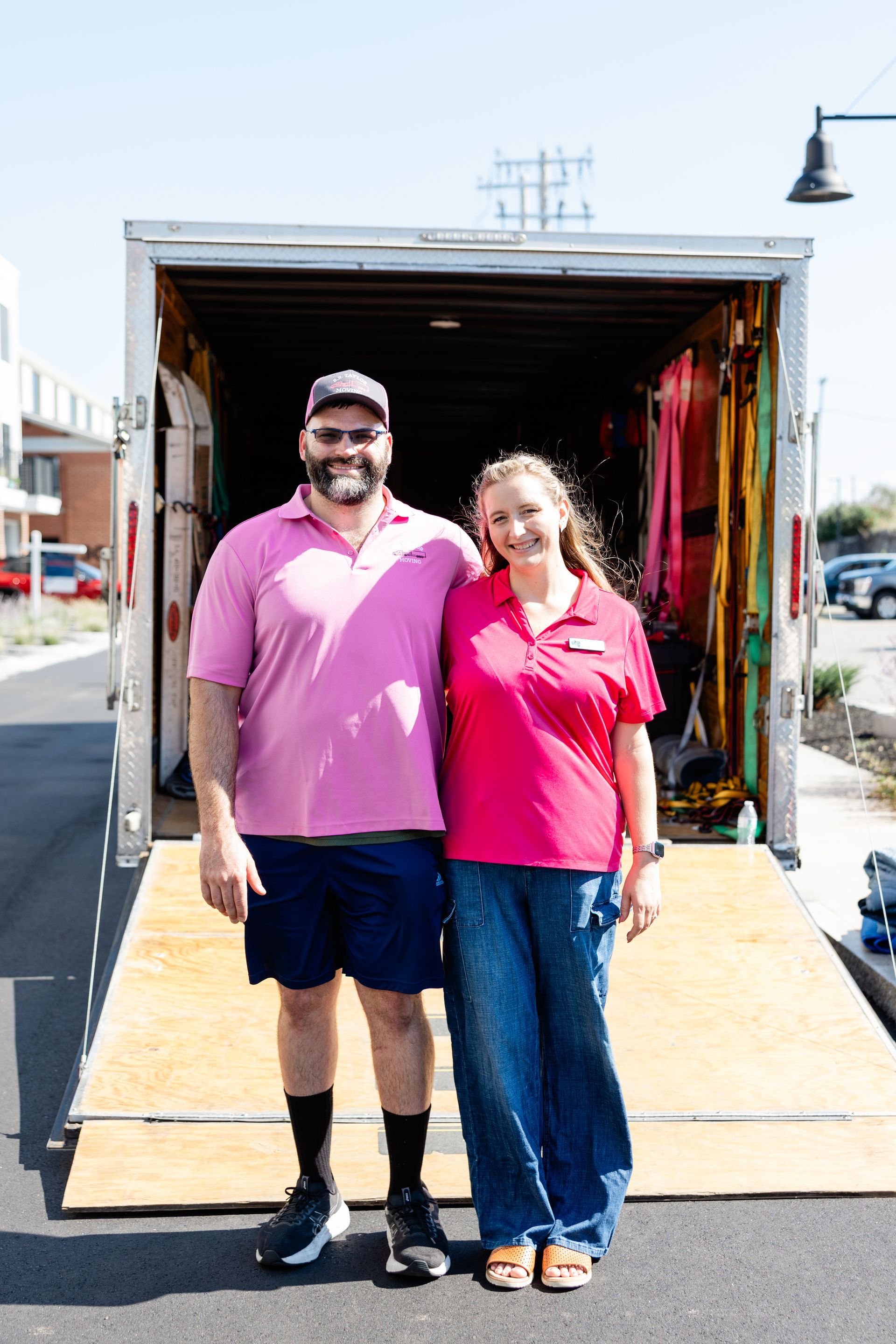
Look, I'm going to be straight with you because you need someone to tell you the truth about what you're facing.I spent years as a Certified Nursing Assistant working overnight shifts with people who had Alzheimer's and dementia. Veterans. Hospice patients. People who were terrified and confused and absolutely convinced their families had abandoned them at 2am.
I sat with them. I held their hands. I told them over and over that they weren't forgotten, that someone was coming back, that they were safe. I went through their belongings and had to take away things they couldn't have anymore—razors, glass bottles, things that could hurt them. I watched families cry in hallways because they didn't know if they were doing the right thing.
And then Steven and I started a moving company, and I brought all of that with me. Because moving someone with dementia isn't about getting boxes from point A to point B. It's about understanding that you're dealing with someone who's scared, who doesn't understand what's happening, and who deserves to be treated with dignity even when their brain isn't working right anymore.
So if you're reading this because you're about to move your mom or dad into memory care, I want to walk you through what actually works—not the theory, but what I've learned sitting in those rooms at 3am when someone is crying for their mother who died thirty years ago.
First Thing I Need to Know: When Is Your Parent Actually Okay?
Before we talk about anything else, I need you to tell me: Is your parent a morning person or do they sleep late? When during the day are they the most themselves?
This matters more than you think.
People with dementia usually have a window—maybe it's 9am to 1pm, maybe it's 10am to 3pm—when they're calm, alert, as clear as they're going to be. Outside that window? It's rough. Especially late afternoon and evening when sundowning kicks in and suddenly the person who was fine at lunch is trying to escape, or crying, or thinks it's 1952.
So when we plan your move, we're scheduling it during that good window. Your dad's sharpest between 8am and noon? That's when we're moving. We get in, we get out, and we're done before he starts to decline.
And listen—we don't want him there while we're packing up his house. I know you think he should be involved, that it's respectful to include him. But I'm telling you: watching strangers dismantle your life is traumatic even when your brain works fine. When you have dementia? It's terrifying.
Take him to breakfast. Take him for a drive. Keep him in his routine, keep him calm, and let us handle the chaos. He comes back when it's done and his new room is already set up. That's the way to do this.
Talk to the Facility Before Moving Day
Most families don't do this, and then they're scrambling on moving day trying to figure out the rules.
Call the facility. Ask to meet with staff. Ask them everything:
- What makes the first day easier?
- What do families do that makes it worse?
- How do you handle it when someone tries to leave?
- What should I say when I have to leave them there?
- Can I bring them during lunch so they're distracted?
- What does the first week actually look like?
These people do this every single day. They know what works. They'll tell you: bring them during an activity, don't stay too long, don't make a big emotional scene when you leave, don't call twelve times the first night asking if they're okay.
And ask about the room. What can we put on the walls? (Spoiler: usually you can't hang things yourself—staff has to do it or you need command strips.) What furniture fits? What's not allowed?
Read everything they give you. All of it. Because if you don't, you're going to show up with things they can't have and then you're stuck.
What They Absolutely Cannot Have
This catches everyone off guard, but memory care facilities have strict rules about what can be in the room.
I used to be the person going through belongings, itemizing everything, taking away what couldn't stay. I've had to tell families, "I'm sorry, your mom can't have this perfume bottle because it's glass and she might break it and hurt herself." It's awful, but it's real.
They usually can't have:
- Glass anything—bottles, picture frames, mirrors
- Sharp things—scissors, nail clippers, razors (sometimes electric shavers are okay)
- Mouthwash with alcohol (they might drink it)
- Anything with a charging cord until maintenance inspects it
- Space heaters, heating pads, electric blankets
- Candles, even fake ones sometimes
- Lighters, matches
- Their own medications (facilities lock those up)
Why? Because someone with dementia might try to shave with a disposable razor and cut themselves badly. They might drink mouthwash thinking it's juice and not realize it has alcohol. They might leave a heating pad on all night and start a fire.
The facility isn't being mean. They're keeping your parent alive.
So before moving day, get the complete list of what's not allowed. Read it. Ask questions. Transfer products from glass to plastic bottles. Plan ahead.
Because the last thing you need on an already horrible day is staff confiscating your mother's favorite perfume and throwing it away.
We Don't Argue About What They're Taking
This is something I learned working with dementia patients that applies directly to moving: you don't tell them "no" about things that matter to them.
Your dad wants to bring his dresser, his bookshelf, his chair, his desk, his filing cabinet, and his TV stand. You're thinking, "That won't all fit in a 12x14 room."
When he asks if we're taking it, we say, "Absolutely. We'll take care of it."
But here's what's actually happening: you and I have already talked. You've told me what the facility said fits in the room. We're bringing what you've decided can go in that space. If there are extra items, we'll bring those too and store them, or we can schedule another time to bring more later.
But on moving day? We don't argue with your dad about what he can and can't take. We validate. We agree. We keep things calm.
Because when someone with dementia feels like they're losing control—which they are—arguing makes them dig in, panic, refuse to cooperate.
And honestly? Starting with less is usually better anyway. You can only fit so much into these spaces. Bring the essentials, see how they adjust, and then decide if they need more. It's easier to add things than to overwhelm them with too much stuff on day one.
So we agree. We stay calm. We handle the logistics with you behind the scenes without making it their problem.
Setting Up the Room So It Feels Familiar
Most movers dump your boxes in a room and leave. We don't do that.
Steven and the crew set up the room to look as close to the old room as possible before your parent walks in.
We put the bed in the same position relative to the window. We put their chair where it was before—by the window, by the TV, wherever it lived. We arrange the dresser the same way. We set up photos where they can see them.
And yeah, we'll make the bed if that helps you.
Because when someone with dementia walks into a completely unfamiliar room—even if it has their furniture—they panic. But if they walk in and see their chair by the window, their quilt on the bed, their photos arranged the way they remember? Their brain goes, "Oh. I know this."
It's not perfect. They'll still be confused. But it's something.
What Actually Helps: Sight, Sound, and Smell
Memory isn't just visual. It's sensory. And when you're trying to help someone with dementia feel oriented in a new place, you need to think about what they'll see, hear, and smell.
Sight: Use old photos—like, really old. Not pictures from last year. Pictures from 30, 40 years ago when everyone looked the way they remember. A lot of people with dementia don't recognize recent photos of themselves or their family anymore.
Put something familiar outside their door so they can find their room. The hallways all look the same. The doors all look the same. They get lost. So we help families create a marker—maybe an old photo of them from decades ago (they might not recognize themselves in a mirror anymore, which is why a lot of facilities don't have mirrors), or a wreath with their name, or a decoration from their house. One family used their mom's old kitchen clock. It didn't match anything, but she knew that clock. She could find her room.
Sound: If your parent always had the radio on, bring a small radio. If they watched the news every morning, make sure the TV is set to that channel. Familiar sounds are grounding.
Smell: This is huge and most people forget it. Smell triggers memory more powerfully than almost anything else.
Bring their blanket from home—the one they've had for years, not a new one. It smells like them, like home. Bring their pillow. If your mom always used a specific lotion or your dad had a favorite aftershave, bring that (in a plastic bottle, not glass).
You can't bring candles—facilities won't allow them. But you can bring things that smell familiar and comforting.
What You Bring to the Room
Nightlights. Everywhere. Bathroom, bedroom, hallway if allowed. Confusion gets worse at night, and waking up in the dark in an unfamiliar place is terrifying.
Their actual chair. Not a similar one. Not a "nicer" one. THEIR chair. The one they sit in every day.
Familiar blankets and bedding. The quilt they've had forever. Their pillow. The things that smell like home.
Photos they'll recognize. Old ones, from when they were younger and the world made sense.
Something for outside the door so they can find their room.
Don't bring too much. More stuff doesn't make it feel more like home—it makes it feel cluttered and confusing. Bring their favorite things, not everything.
The First Goodbye—What to Actually Say
This is the moment you're dreading. You've gotten them settled. The room looks okay. They're sitting in their chair. And now you have to leave.
And you know—even if they don't—that this is it. They're not coming back home.
Most families handle this wrong. They either sneak out (which makes the person feel abandoned), or they have this long, tearful goodbye (which scares the person), or they promise "I'll be back in a little while" and then don't come back for three days (which breaks trust).
Don't do any of that.
Instead, keep it short and calm. Like you're running to the store.
"I'm going to head out now. I'll see you tomorrow." "I need to go take care of a few things. I'll be back soon." "I'm going to let you get settled. I love you."
Be specific about what YOU'RE doing, not about their situation: "I'm coming back Tuesday afternoon and we'll have lunch." "I'll call you tomorrow morning."
Do not—and I mean this—do not say:
- "You're going to live here now"
- "You're never going home"
- "Don't you remember? We talked about this"
- "This is your home now"
Why? Because telling someone with dementia "this is forever" doesn't help them adjust. They can't process "forever." They live in right now. All they need to know is: you're safe, I'm coming back, this is okay for today.
Tomorrow they might not even remember you left. Or they might, but by then they've had dinner, met someone, slept in their bed, and it's a tiny bit more familiar.
Don't tell them they're never going home again. That's not helpful. It's just cruel.
When They Beg You Not to Leave
This is the worst part.
You're walking to the door. They realize what's happening. And they say, "Please don't leave me here. Take me with you. Why are you doing this to me?"
Your instinct is to comfort them, to explain, to apologize, to cry with them.
Don't.
Stay calm. If you fall apart, they panic more.
Redirect instead of arguing: "Let's sit for just a minute. Tell me about this picture." "I know this is hard. But you're safe and I'll be back tomorrow."
Signal staff. They'll step in. They'll redirect your parent to dinner or an activity, or just sit with them.
And then you leave. Quickly. Don't drag it out. Don't come back "one more time."
And whatever you do, don't take them home "just for tonight" because you can't stand seeing them upset. If you do that, you'll have to do this all over again tomorrow, and it will be harder.
Call the facility an hour later. Most of the time, they'll tell you, "She had dinner. She's watching TV. She's fine." The panic passes.
You're Going to Feel Like You Abandoned Them
Let me just say this plainly: You're going to drive home crying. You're going to call the facility six times. You're going to lie awake wondering if you're a terrible person.
This is normal. This is what love looks like.
But you did not abandon them. You kept them safe.
Abandonment is leaving someone in danger. You didn't do that. You moved them to a place where they'll be fed, medicated, monitored, kept safe 24/7. You moved them so they won't wander outside in a Maine winter and freeze to death. You moved them so they won't fall down stairs. You moved them so you can be their child again instead of their exhausted caregiver who's drowning.
That's not abandonment. That's love.
They might not understand it. They might never understand it. But you did the right thing anyway.
The First Few Days
Day 1-2: They'll probably be confused and want to leave. This is normal. Keep visits short—30 minutes to an hour. Don't take them out of the facility yet.
Day 3-7: They may settle in a bit, or they may still be upset. Staff will start to learn their routine. Don't visit every single day—let them bond with staff and other residents.
Week 2-4: Most people start to acclimate. They may still say they want to go home, but with less urgency. They start to recognize staff. They participate in activities.
Month 2+: Many families tell us their parent has adjusted better than they expected. They've made a friend. They know the routine. They stop asking to leave as much.
Some never fully adjust. And that's hard. But even then, they're safe. And that matters.
What Families Get Wrong
They over-explain the move. If your parent has mid-to-late stage dementia, they won't remember the explanation anyway. Keep it simple and immediate: "We're going to your new home today. I'll be with you."
They bring too much stuff. More furniture doesn't make it feel more like home—it makes it feel cluttered and confusing. Bring favorites, not everything.
They visit too much in the first week. I know you want to be there. But if you're there every day for hours, your parent never bonds with staff. They just wait for you to take them home. Visit every other day. Let staff do their job.
They promise "just a trial run." This creates false hope and makes adjustment harder. Commit to the move. Don't frame it as temporary, but don't tell them it's permanent either. Take it one day at a time.
The Sundowning Problem
Sundowning—increased confusion, agitation, and anxiety in late afternoon and evening—is one of the biggest challenges with dementia moves.
You move them in the morning. Everything goes smoothly. They seem okay at lunch. Then, 3 pm hits, and they completely fall apart. They're trying to leave, they're asking for people who aren't there, they're upset and don't know why.
This is why timing the move during their best hours matters so much. If we can complete the move and get them settled during their good hours, they wake up the next morning in "their" space. Yes, they'll be confused, but they're not dealing with the trauma of the move itself during their worst hours.
Work with staff on this. Most good memory care facilities understand sundowning and will adjust activities, medications, and routines around it.
When They Say "I Want to Go Home"
This is the phrase that breaks every family member's heart.
You moved them to keep them safe. You know their old house wasn't working anymore. You know this is the right decision.
And they look at you and say, "Please take me home."
When someone with dementia says, "I want to go home," they often don't mean the house you just left. They mean a feeling. They mean safety. They mean a time when they weren't confused and scared.
Sometimes "home" means their childhood home. Sometimes it means when their spouse was alive. Sometimes it just means "I want to feel okay again."
So don't argue. Don't explain. Don't say "This IS your home now."
Instead:
- "I know. Let's sit here together for a bit."
- "Tell me about home. What do you miss?"
- "We'll talk about that later. Would you like some tea?"
- "Your room is right here. Let me show you."
Redirect gently. Validate their feelings. Don't try to logic them out of it.
And whatever you do, don't tell them they're never going home again. That's not helpful. It's just cruel.
We Can Connect You with People Who Can Help
You probably need more than just movers. You might need help finding the right facility, or selling your parent's house, or figuring out legal stuff, or just someone who understands.
We know people. Good people. Senior placement specialists. Health advocates. Realtors who work with seniors. Estate sale companies. Elder law attorneys. People we've worked with whom we trust.
Call us and tell us what you need. If we can't help directly, we'll connect you with someone who can.
What We Do Differently
When families call us, they usually say, "We've never done this before."
And I tell them, "That's okay. I have."
We ask about your parent's daily rhythm and schedule around their good hours. We keep them out of the chaos. We never argue with them about what they want to bring. Steven and the crew set up the room before your parent arrives—bed made, photos placed, chair positioned, familiar things arranged so it feels like home.
We move quietly. We move calmly. We give families space when they need it.
And we're there. I'm there. We advocate for you and your loved one. We listen. We show up. We hold hands. We share hugs. We shed tears with you.
Because I've been on the other side of this. I've sat in those overnight shifts when someone was scared and confused. I've assured people they weren't abandoned when they were convinced they were.
So when we show up at your door, you're not just getting movers. You're getting people who understand what you're going through. Steven leads the crew with care and respect. And I'm here to help you and your parent through one of the hardest days of your lives.
You're Doing the Right Thing
Your parent needs care you can't give them at home. They need 24-hour supervision. They need medication management. They need to be safe. They need you to be their child, not their burned-out caregiver.
That's not failure. That's love.
Call us at (207) 502-4035 and let's talk about your parent's move. I'll ask about their routine, their needs, and how we can make this easier. Then Steven and the crew will handle the physical move with the same care and understanding.
Because you shouldn't have to figure this out alone.
S.B. Taylor Moving
Trauma-Informed Moving for Maine Families
USDOT #3771801 | MC #1351280
(207) 502-4035

